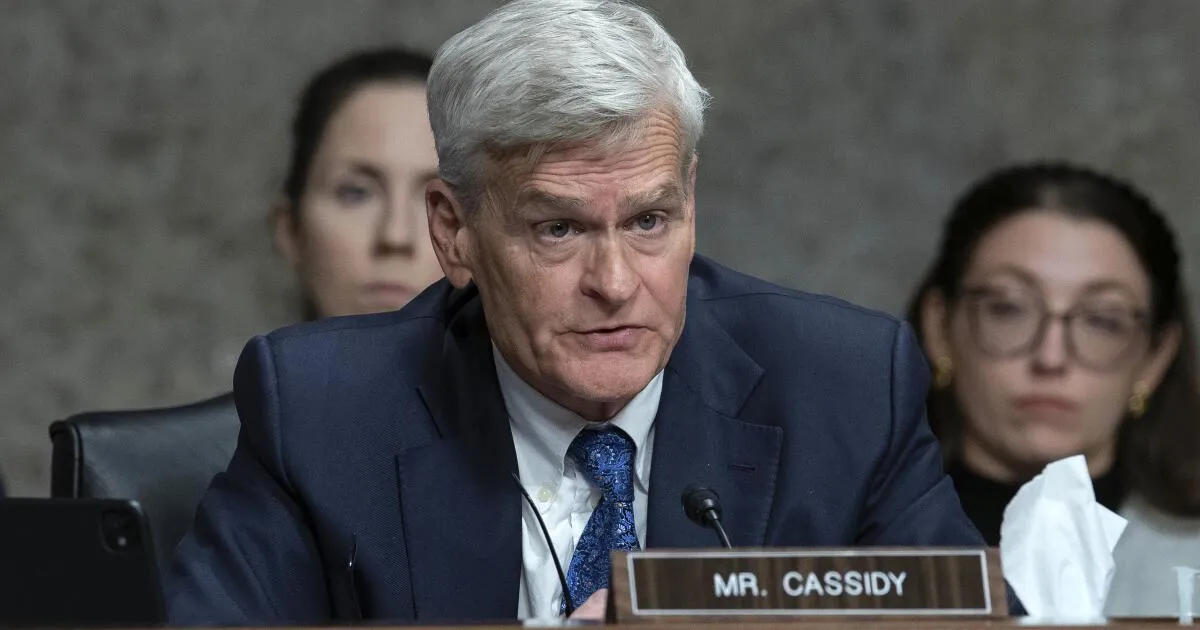
Sen. Bill Cassidy (R-La.), a physician with a commendable history of advocating for child vaccinations, faced significant backlash after his unexpected decision to support the confirmation of Robert F. Kennedy Jr. as the Secretary of Health and Human Services. Known for his proactive efforts in promoting hepatitis-B and flu vaccines in Baton Rouge schools, Cassidy's reputation as a proponent of public health took a dramatic turn on February 4.
On that day, Cassidy announced his intention to vote in favor of Kennedy's nomination, a move that surprised many within the bipartisan community who respected his previous commitment to vaccination efforts. Kennedy's nomination was precariously close to failing, but Cassidy's support turned the tide during the confirmation vote on February 13. Cassidy later revealed that Kennedy had assured him of a collaboration that would be “unprecedentedly close,” which seemed to alleviate his concerns about the anti-vaccine activist's leadership.
However, Cassidy's trust in Kennedy quickly proved misplaced. On June 9, Kennedy dismissed all 17 members of the Advisory Committee on Immunization Practices (ACIP) and appointed a new group, which included individuals labeled as “antivaxxers” and those lacking the necessary qualifications. This alarming development was noted by David Gorski, a seasoned debunker of pseudoscience.
After a period of silence, Cassidy finally spoke out against the appointments on social media two days before ACIP's first conference with the newly appointed members. He expressed concerns that many of the new members lacked adequate experience in relevant fields such as microbiology, epidemiology, or immunology. Cassidy highlighted the importance of having a balanced representation on the committee, especially regarding new technologies like mRNA vaccines, which are crucial in the fight against COVID-19.
Experts like Paul Offit, a prominent vaccine specialist, questioned Cassidy's request for a “balanced” committee, raising concerns about the inclusion of anti-vaccine activists alongside credible scientists. This skepticism was echoed by Peter Hotez, a leading vaccine developer, who suggested that reputable experts might hesitate to join ACIP as long as anti-science figures remained on the panel.
Furthermore, legal experts such as Dorit R. Reiss clarified that the Federal Advisory Committee Act of 1982 does not mandate the inclusion of anti-vaccine activists on advisory committees. Instead, it emphasizes a diverse range of expertise in vaccination and vaccine-preventable diseases, reinforcing that Cassidy's insistence on balance may reflect a misunderstanding of legal requirements.
As the ACIP meeting convened in Atlanta as scheduled, a troubling agenda item emerged: a presentation by Lyn Redwood on thimerosal, a substance long discredited in association with autism. Redwood's connection to the anti-vaccine group Children’s Health Defense, linked to Kennedy, raised further concerns about the direction in which Kennedy intended to steer public health policy.
Despite the growing controversy, Cassidy's office maintained that his criticisms were focused on the process rather than Kennedy's staffing decisions. However, this stance appears contradictory to Cassidy’s earlier assurances that Kennedy would keep ACIP functioning without any significant changes.
With the current leadership at ACIP and the CDC under scrutiny, the future effectiveness of these bodies is uncertain. The CDC currently lacks a confirmed director, following the withdrawal of Trump's initial nominee due to anti-vaccine views. This void has allowed Kennedy to make unilateral decisions that undermine established medical consensus regarding COVID-19 vaccines, especially for vulnerable populations like pregnant women and children.
Experts fear that Cassidy's initial support for Kennedy may have irreparably damaged his credibility as a reliable advocate for vaccines and public health. Paul Offit emphasized that Cassidy's moment to influence change was squandered when he voted 'yes' for Kennedy's confirmation. The ongoing turmoil within ACIP and the CDC raises critical questions about the integrity of vaccine recommendations and the broader public's trust in vaccine policy.
As the landscape of public health continues to evolve, the implications of Kennedy's leadership may lead to a significant shift in how vaccines are perceived and administered in the United States. With experts advocating for a dissolution of the current ACIP committee, the need for a return to science-based decision-making has never been more pressing. The challenges ahead will require a concerted effort from both legislators and healthcare professionals to restore confidence in the nation's health authorities and ensure that public health interests remain paramount.